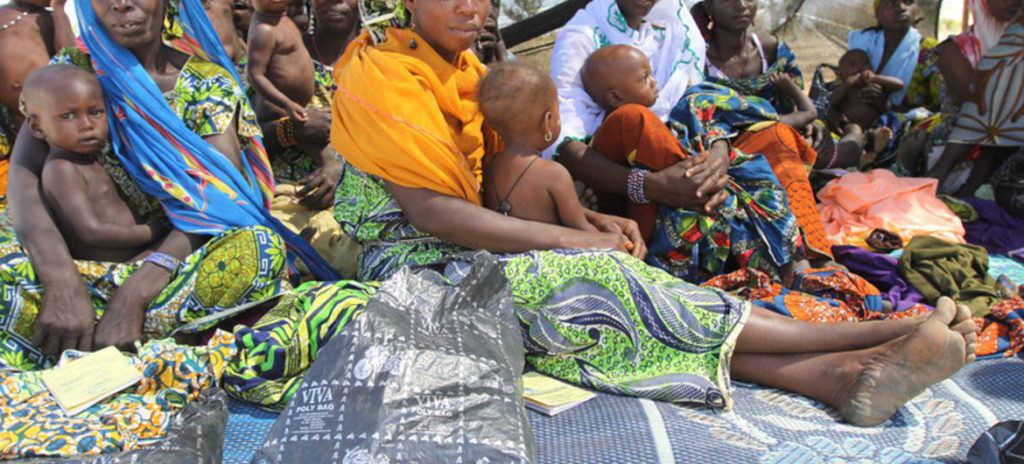On the run in search of safety in Niger

UN Humanitarian
Niger is being assaulted on all fronts. A fragile country, with the world’s lowest human development outcomes, Niger is now being destabilized by conflict that is spilling over from Burkina Faso and Mali. At the same time, it is host to thousands of new refugees who have fled violence in neighbouring Nigeria, and migrants who have fled brutality in Libya. Added to the mix is climate change, which is heating up the Sahel more quickly than any other region, causing a devastating drought and flooding cycle, which is worsening hunger and malnutrition levels across the country. One in ten Nigeriens – or 2.3 million people – now require humanitarian aid to survive and this figure is projected to rise again next year.
The UN’s Assistant Secretary-General for Humanitarian Affairs, Ursula Mueller, recently went to Niger to meet with refugees, migrants and host communities whose lives have been overturned by violence, and to hear from the Prime Minister and other Government officials about their priority concerns.
Here are some of their stories.Violence intensified this year in Diffa south-eastern Niger, with the number of people killed, injured or abducted the highest since the crisis began in 2015. Refugees like Mari told of being attacked multiple times, including in Niger once she had fled her village in Nigeria’s Borno State. She and many others have been living in this displacement site for years.
One 18-year-old resident, Sherif, fled home when he was 14, and has never been to school. Men and young people there said they are desperate to do something useful. One young man told Ms. Mueller: “I want to know what is happening in the world around me and learn skills so that I can work.”
In 2019 there were more than 400,000 people displaced in Niger, some internally and others who had fled their homes from Burkina Faso, Mali and Nigeria. More than 250 civilians had lost their lives, and a further 320 were abducted. The Government has launched ambitious emergency plans to help the most vulnerable, and opened its doors to refugees and migrants. Meanwhile, host communities have generously shared their scarce resources with the displaced.
Here in Awaradi, 20,000 internally displaced people and refugees live together, mostly peacefully, though tensions do arise over access to scarce resources. The UN refugee agency, UNHCR, is eager to find more sustainable solutions than traditional emergency assistance. Here it pays young people from both displaced and host communities to make bricks, which they can then use to build houses.
Mohammed and Ibrahim
Sixteen-year-old Mohammed and 15-year-old Ibrahim from South Sudan, are among many teenagers at the UNHCR refugee transit site in Niger. Mohammed will soon be resettled in Sweden.
The Niger Government has shown solidarity by opening transit centres for asylum seekers waiting for relocation to third countries.
Fleeing enslavement
Others fled difficult economic conditions at home to seek jobs in Libya. Twenty-four-year-old Agnes travelled from Guinea through Mali to Libya but as soon as she arrived there, a trafficker passed her onto a slave-trader. She was one of a group of women who were enslaved, starved and repeatedly raped.One evening the women managed to flee during prayers, walking across the desert to seek shelter with the International Organisation for Migration (IOM), which runs a migrant transit centre in Niamey, providing counselling, literacy and skills-training. Most now want to return home to see their children again.
Children look to the future
Non-state armed groups in Chad, Mali, Nigeria and beyond have abducted and forcibly recruited children as fighters, sexual slaves or into other roles. Children are also vulnerable to arrests during the heavy-handed military crackdowns that have taken place. Many did not have guns – they were simply in the wrong place at the wrong time. A rehabilitation centre in the capital helps children as young as eight-years-old process what has happened to them through therapy and theater, which slowly helps them to recover, and to reintegrate back into society.
Summing up her visit to Niger, ASG Mueller said: “I was extremely moved by the courage shown by the internally displaced people, refugees, migrants and asylum seekers with whom I spoke. And by the exemplary generosity and solidarity shown by the authorities and by the communities hosting them, despite being among the most vulnerable. We owe it to them to strengthen our support.”